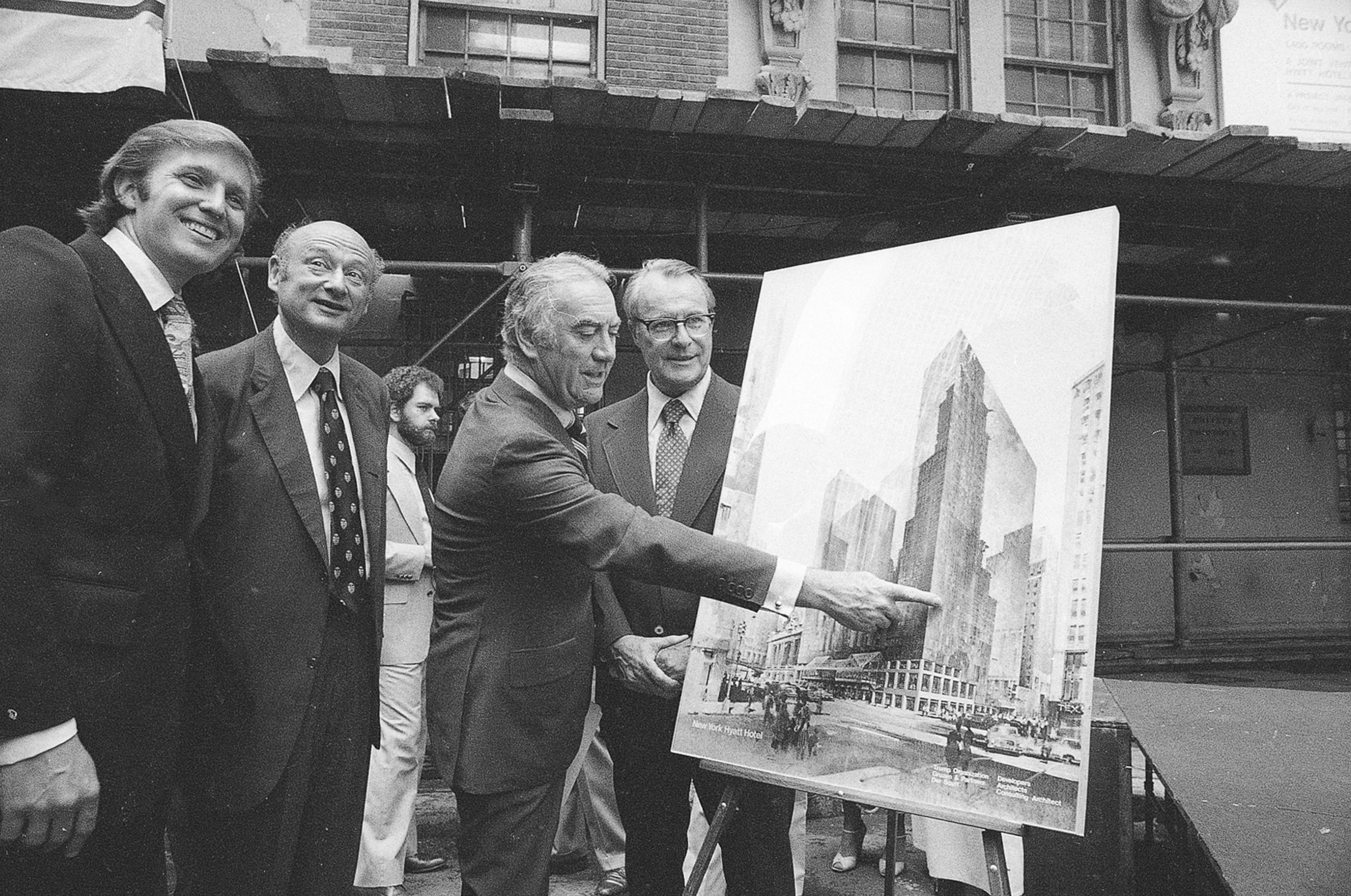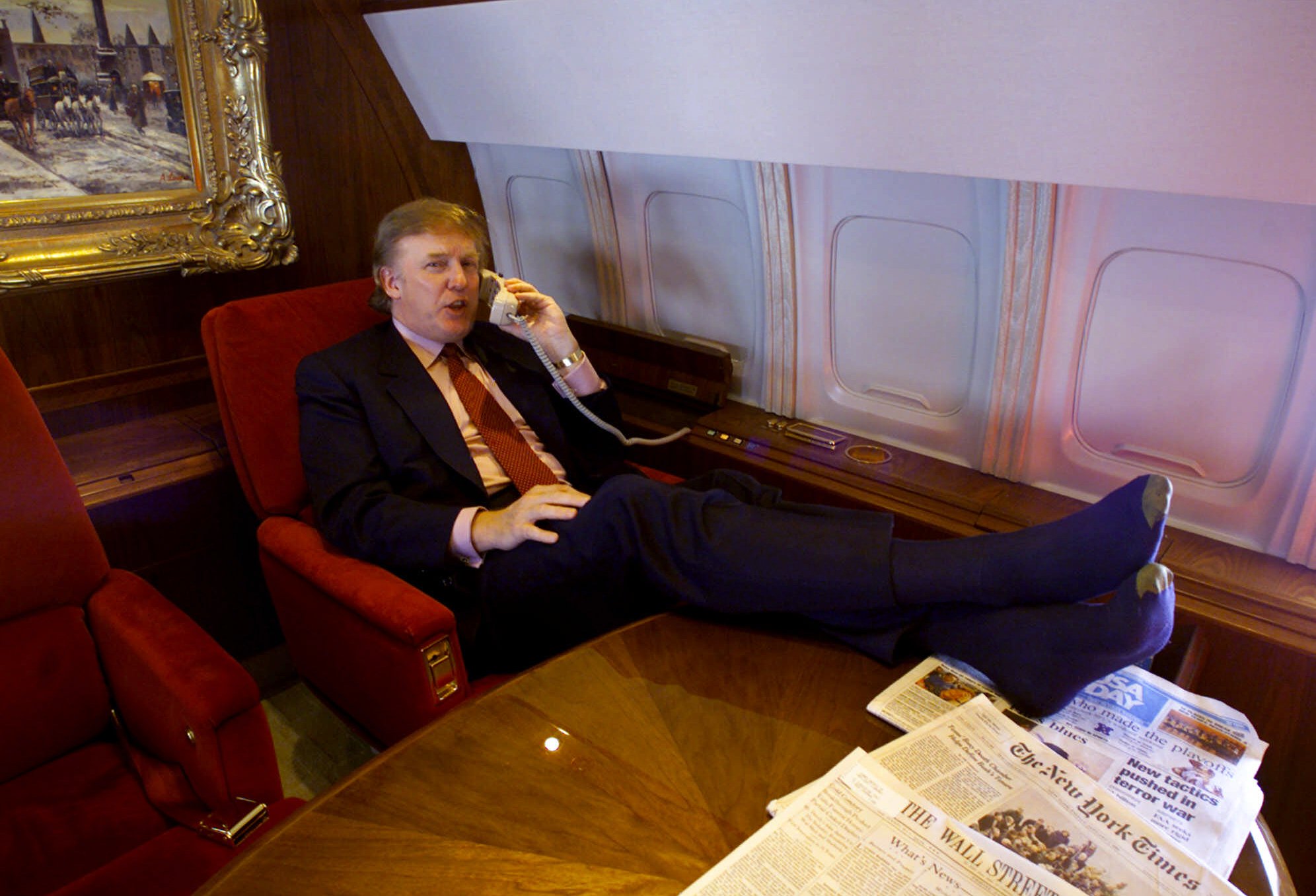Revelations about Trump's taxes call into question decades-long claims of having a Midas touch
In interviews, Trump claimed financial success throughout the 80s and 90s.
In a variety of interviews during the 80s and 90s, Trump regularly touted his financial savvy.
"Everything I touched turned to gold immediately," Trump told ABC's Nancy Collins, reflecting on that period in a 1994 interview
But a new report out Wednesday by the New York Times tells a very different story about Trump's finances. The report shows for the first time in detail the significant debt carried by Trump's businesses, which were shown to be losing millions of dollars annually.
Trump's businesses were in the red throughout the 80s and 90s, at times hemorrhaging tens of millions of dollars, according to the report which was based on IRS tax transcripts from 1985 to 1994.

ABC News has not independently confirmed the tax documents made available to the New York Times.
Trump's attorney, Charles Harder, refuted the report’s findings in a statement to the Times, calling the transcripts used to gain Trump's tax information "notoriously inaccurate, incomplete and selective" and stating that reporting based off of the transcripts would be "speculative at best".
Trump’s transformation from humbler aspirations when, in 1980, he told Tom Brokaw "I'm not looking to make tremendous amounts of money” to superlative-filled claims, to enormous wealth was meteoric.
In 1987, Trump published "The Art of the Deal" -- a book which cemented the public concept of Trump as a mogul brand with the Midas touch. The book skyrocketed up the bestsellers list even as the future president was losing almost all the gains he had made in the stock market.
That same year Trump was asked by David Letterman how much he was worth.
Trump replied, "Zero idea David, it depends on what's happening in the world and the market, but a million dollars for everyone in the audience sounds like it could be an intriguing idea."

Just after the release of "The Art of the Deal" Trump appeared on CNN's Crossfire with Pat Buchanan to tout the success of his real estate investments.
"Trump Tower is the most successful building in New York," Trump told Buchanan "It's been an unbelievable success as you folks know. People come from all over the world to see it and it has gotten tremendous architectural reviews."
That year, the New York Times reports that Trump reported a loss of $4.5 million in gross adjusted income.
In a 1989 interview with Diane Sawyer Trump would again tout the success of his businesses in a conversation about Japanese business in America, stating that "fortunately my deals are so good they get very automatic American backing."
Trump's businesses fell more publicly on hard times in the early 90's, when it was widely reported that Trump's Taj Mahal was in financial trouble and his business filed for bankruptcy.

But before his casinos fell on financial hardship, Trump told Barbara Walters in 1987 that his business knowledge led him to get into the gaming world in Atlantic city.
"I knew the numbers. I knew the economics. I never knew much about the gaming industry per se except for the numbers," Trump told Walters
In the midst of his public the financial fallout, Trump maintained that his assets far outweighed any debt he may have incurred. He told Walters in a 1990 interview that his assets were "world class".
When asked by Walters how he planned survive while he owed a tremendous amount of money, Trump replied, "You know why? 'Cause I have great assets."
By the mid 90's, reflecting back on his business in the late 80's, Trump would tell Collins that he was "at the highest of all pedestals, the hottest in the country, the highest point. Everything I touched turned to gold immediately."
The Times report only reflects data on Trump's financials up to 1994. In a 2004 interview, Trump was again asked about his financial savvy in an interview with Playboy. When asked what it was like to be "back on top", Trump likened his status to that of a "rock star".
"Certainly a businessperson on television has never had anything close to this success," Trump said. " Six people do nothing but sort my mail."




